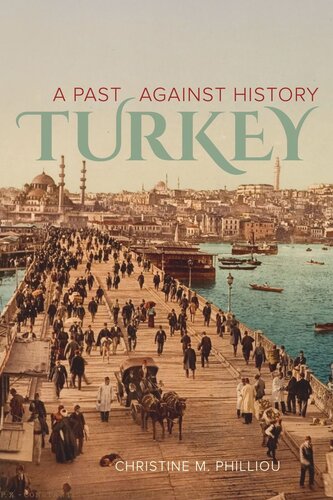

Most ebook files are in PDF format, so you can easily read them using various software such as Foxit Reader or directly on the Google Chrome browser.
Some ebook files are released by publishers in other formats such as .awz, .mobi, .epub, .fb2, etc. You may need to install specific software to read these formats on mobile/PC, such as Calibre.
Please read the tutorial at this link: https://ebookbell.com/faq
We offer FREE conversion to the popular formats you request; however, this may take some time. Therefore, right after payment, please email us, and we will try to provide the service as quickly as possible.
For some exceptional file formats or broken links (if any), please refrain from opening any disputes. Instead, email us first, and we will try to assist within a maximum of 6 hours.
EbookBell Team

0.0
0 reviewsFrom its earliest days, the dominant history of the Turkish Republic was told as a triumphant narrative of national self-determination and secular democratic modernization. In that officially sanctioned account, the years between the fall of the Ottoman Empire and the formation of the Turkish state marked an absolute rupture, and the Turkish nation forms an absolute unity. In recent years, this hermetic division has begun to erode—but as the old consensus collapses, new histories and accounts of political authority have been slow to take its place.
In this richly detailed alternative history of Turkey, Christine Philliou focuses on the notion of political opposition and dissent—muhalefet—to weave together the Ottoman and Turkish periods. Taking the perennial dissident Refik Halid Karay (1888–1965) as a subject, guide, and interlocutor, she traces the fissures within the Ottoman and modern Turkish elite that bridge the Ottoman Empire and Republican Turkey. Exploring Karay’s political and literary writings across four regimes and two stints in exile, along with his direct confrontation with Mustafa Kemal Atatürk at a crucial moment in 1919, Philliou upends the official history of Turkey and offers new dimensions to our understanding of its political authority and culture.